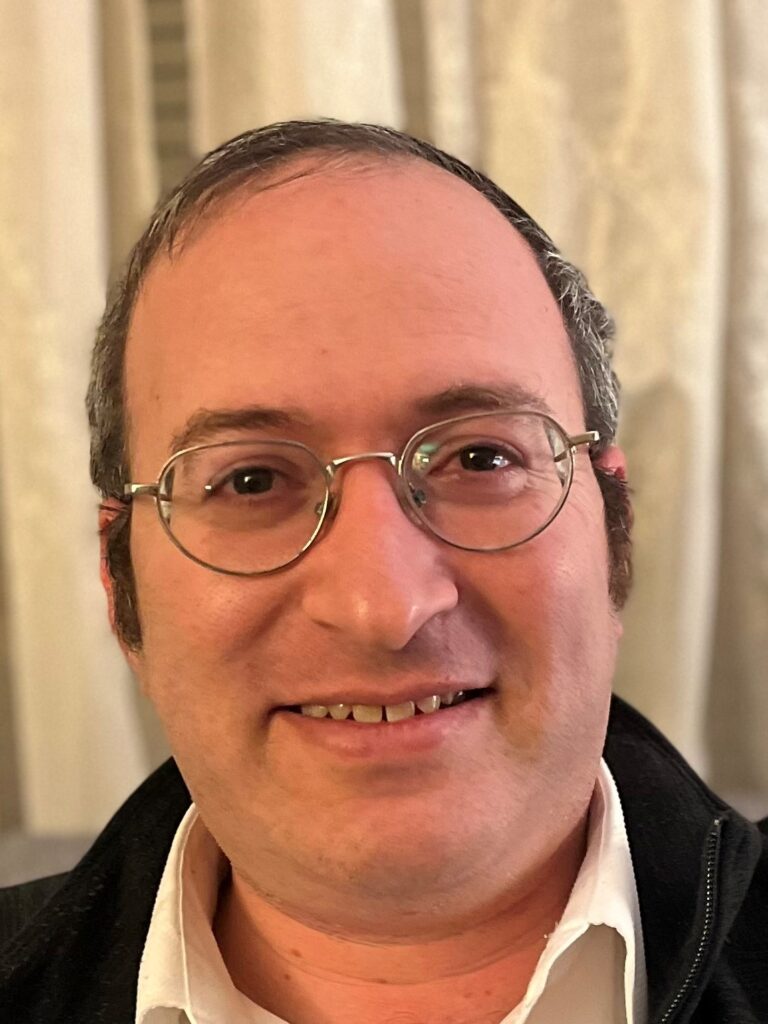Q&A: Netanel Gemara, postdoctoral fellow, FIFSW
Categories: Q & A, ResearchNetanel Gemara completed his postdoctoral research at the Factor-Inwentash Faculty of Social Work, joining FIFSW from the Paul Baerwald School of Social Work and Social Welfare at The Hebrew University of Jerusalem in Israel, where he completed his PhD. His research focuses on multi-cultural religious issues that influence risk and protection for children and the implications for practice. He also examines ethical concerns arising from the encounter between social workers and members or religious minority groups. We spoke to Dr. Gemara to learn more about his research and his experiences as Ultra-Orthadox social worker.
 What inspired you to pursue Social Work as a field of study?
What inspired you to pursue Social Work as a field of study?
When I started studying social work, there was a significant shortage of Ultra-Orthodox social workers. Early on, I realized I could fill a major void in my community as an Ultra-Orthodox social worker. Having seen firsthand how the Ultra-Orthodox community experiences many needs that are not being met appropriately because of cultural differences, I hoped to help bridge this gap.
Could you share a bit about your experiences as a practicing social worker?
The majority of my clients are children and families from ultra-Orthodox communities. I work in Ultra-Orthodox schools with children who suffer from different forms of trauma. Instructing the educational staff on trauma and emotional development is a major part of my work. Their willingness to learn and accept guidance is impressive. Often, professionals perceive these communities as resistant to professional intervention, but my experience is that when there is respect and sensitivity, these communities are eager to hear and learn.
Your research delves into questions around the ethical dilemmas that arise when cultural practices and the need to be culturally sensitive conflicts with ethical principles common to the social work field at large. What are some issues that are important for social workers to keep in mind when confronting such dilemmas?
When working with minority groups, social workers should be aware of their personal values as well as the profession’s values. We must be mindful of how these values and norms emanate from a Western, individualistic world of reference and may differ from the values and norms of our clients’ culture. In our work, we frequently employ an ethnocentric perspective that ignores other cultural paradigms on fundamental issues such as childhood, family, well-being, etc. Social workers must also consult cultural experts or work with social workers from minority groups to determine whether a behavior is truly cultural and whether it is simply a disguise for abuse.
What role does stigma play in access to care for the Ultra-Orthodox Jewish community?
There are fluid boundaries within the Ultra-Orthodox community, which is collectivistic society. It is common among members of the community to be afraid that once others learn of their mental health issues, it may adversely affect their status in the community, and they may face social sanctions including being barred from getting married. Because of this, confidentiality is essential when working with this community. Some clients may prefer to approach a therapist who is not a community member to ensure confidentiality, while others may choose not to get help. Due to the advancement in mental health knowledge and awareness, as well as the development of culturally competent solutions, the consumption of mental health services has increased significantly over the past decade.
How has your experience doing postdoctoral research at FIFSW informed your work?
During my time at FIFSW, I worked on a number of projects, including one that focused on online sexual abuse of children. My work with Professor Faye Mishna enabled me to gain a deeper understanding of digital abuse and to enhance my academic abilities. Professor Mishna and I are working on additional projects together, and I am sure that my connection with FIFSW will remain central to my academic career.
What are some of the issues that social workers need to be aware of when it comes to the use of online technology within different cultural groups?
The ultra-Orthodox Jewish community opposes the use of online technology. In Israel, most members of the ultra-Orthodox community do not own smartphones, and internet usage is very limited. Consequently, social workers face many challenges, both technical and ethical. During COVID, for example, many of the social facilities that were forced to use online mediums for providing services were not approachable to the Ultra-Orthodox community. Even when social services provided the clients with the necessary technology, many were unable to properly use it. As social services advance with the implementation of technological modes of communication, consideration needs to be taken to the different communities that may be left behind without the ability to receive the required services.
Recent publications by Netanel Gemara
Netanel Germara, Yochay Nadan, “He Who Spareth the Rod Hateth His Son”: Perceptions Regarding Corporal Punishment Among Ultra-Orthodox Jewish Fathers in Israel, Journal of Interpersonal Violence, Volume 37, Issue 1-2, pages 70-101
Netanel Gemara, Yochay Nadan, Dorit Roer-Strier, Social workers’ constructions of child risk and protection in the Ultra-Orthodox Jewish community, Journal of Social Work, Volume 21, Issue 6, pages 1469-1488
Netanel Gemara, Yochay Nadan, Law, Value and Norm: The Constitution of a Culture-Bound Ethical Dilemma in Social Work in the Ultra-Orthodox Community, The British Journal of Social Work, Volume 52, Issue 2, March 2022, Pages 700–718
Yochay Nadan, Netanel Gemara, Rivka Keesing, Esther Bamberger, Dorit Roer-Strier, Jill Korbin, ‘Spiritual Risk’: A Parental Perception of Risk for Children in the Ultra-Orthodox Jewish Community, The British Journal of Social Work, Volume 49, Issue 5, July 2019, Pages 1198–1215
Netanel Gemara, Carmit Katz, “It was Really Hard for Me to Tell”: The Gap between the Child’s Difficulty in Disclosing Sexual Abuse, and their Perception of the Disclosure Recipient’s Response, Journal of Interpersonal Violence, Volume 0(0) I-24, May 2022
>Click here to read more Q&As with members of FIFSW’s community